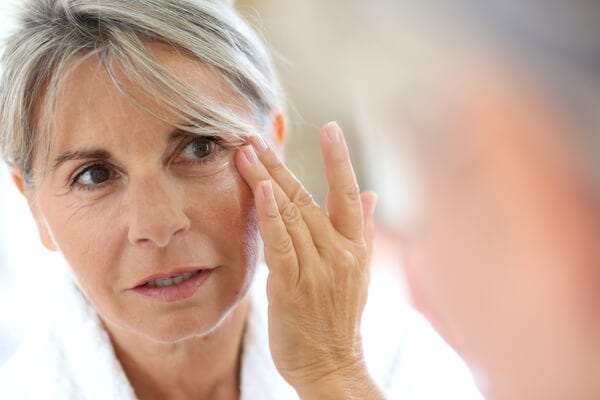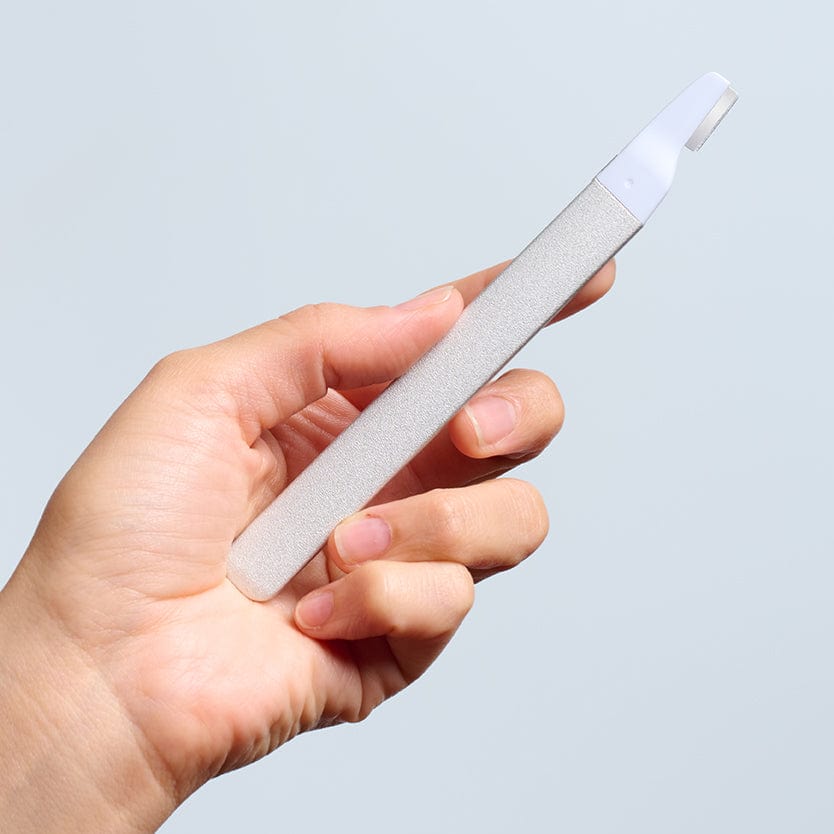How Aging Effects Oil Production In Different Skin Types
Written by Kerry Benjamin

Several elements cause skin to age, including collagen production, UV rays, environmental pollutants, diet and lifestyle choices. While we already know sun damage is one of the most significant factors of aging skin, oil production also plays a huge part.
Glands in your skin secrete a substance called sebum, which keeps your skin moist, smooth and youthful. It also contains Vitamin E, which defends the skin against free radicals and may even function as a natural sunscreen.
As you age into your 40s and 50s, oil production decreases and you will need to compensate by changing your skincare habits. The exact changes depend on your skin type:
Normal Skin
If you have normal skin, expect it to become drier over time. To some degree, the aging speed of normal skin depends on melanin content. A light-skinned Scandinavian will wrinkle faster than a sub-Saharan African. In either case, however, you will need to take more precautions to keep aging skin youthful. Make sure to cleanse, tone and moisturize day and night.
Oily Skin
Individuals with oily skin are lucky… to a degree. The oily excesses of your youth will decrease to healthier amounts as you mature. If you’ve previously used harsh agents to keep your oily skin under control, consider switching to a gentle cleanser that removes surface impurities without compromising the lipid layer of your skin. You don’t want to dehydrate your skin. Exfoliate regularly and use retinoids to accelerate skin cell turnover.
Dry Skin
Dry skin becomes even drier as oil production decreases. You may need to choose a heavier, richer moisturizer once you notice a considerable increase in dryness. Older people with dry skin often suffer from “winter itch.” Changing your hygiene habits may help. For instance, certain soaps and hot baths will exacerbate dry skin. Another solution may be increasing your consumption of omega-3 foods. Essential fatty acids found in cold-water fish, walnuts and flax help the skin retain oil. Bear in mind that chronic itchiness may lead to insomnia and irritability. See your doctor if this condition persists.
Blemish-Prone Skin
Those who suffer from blemish-prone skin have to negotiate a fine line. Products that stimulate oil production keep your skin youthful but also may lead to breakouts. An oil-free moisturizer will be helpful since it doesn’t add any more oil to your skin while keeping it balanced and refreshed.
Combination Skin
Though statistics vary, the majority of women have combination skin. Combo skin means your T-zone (nose, chin and forehead) is oilier than the rest of your face. Your skin may range from oily to normal or even oily to dry. Your best strategy will be to find gentler products that help your skin in general and target problem areas. Bear in mind that this strategy will evolve as you age. Your T-zone may begin to lose its oiliness or formerly normal areas of your face may begin to dry.
Sensitive Skin
Sensitive skin reddens or itches with little provocation. This condition may be seasonal or inherent. There is no magic solution here. You will need to try a variety of products to maintain a healthy level of oil production without irritating the skin. Using gentle anti-aging products is key, since sensitive skin can result from overuse of harsher formulas.
In reality, skin cannot be reduced to mere types. Everybody is different and a skincare professional may be the best judge of your particular condition.
About the Author

Kerry Benjamin, a licensed aesthetician, has over 14 years of experience. Kerry is the driving force behind StackedSkincare. As the company's CEO, Kerry has dedicated her career to revolutionizing skincare. Her innovative approach combines peels, serums, and specialized tools to effectively address a wide range of skin concerns. CA LE license number Z98459.

